
Why Did Trump Fire Comey?
On May 9, President Donald Trump fired the director of the FBI James Comey in a risky and largely unprecedented move. Initially, members of the Trump administration argued that Comey was fired because his incompetent handling of Hilary Clinton’s email scandal had cost him his legitimacy. Why would President Trump fire the head of an agency that symbolizes the integrity of law enforcement and rule of law of which the American system is so proud? In American history only one other FBI director has ever been fired. In 1993, President Bill Clinton fired William Sessions, a Republican hold-over from the Ronald Reagan administration. As the Nixon Presidential Library was at pains to point out, not even President Richard Nixon dared to …

Chaos by Design: The Dehumanising Nature of US Aid Airdropped into Gaza
Since October 7, Israel has blocked most food, water, hygiene items, and medicine from entering Gaza. The government has denied access to aid agencies, security inspections have deliberately slowed the entry of trucks, communication blackouts have cut off internet and phone services to more than two million residents, and Israeli protesters have lined up to block humanitarian aid supplies. Moreover, the US, UK, and other donors suspended funding to UNRWA, the UN’s aid agency for Palestine, after Israel accused staff members of participating in the October 7 attacks and called for the organisation to be disbanded. Crucially, these accusations have not been proven. As a result, people in Gaza are starving. Sixteen children, and counting, have died of malnutrition, UN …
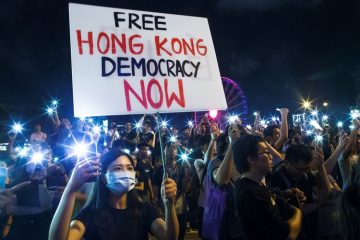
Can the Pro-Democracy Hong Kong Lobby Still Influence Western Foreign Policy?
During the 2019 Anti-Extradition Bill protests in Hong Kong, activists made extensive efforts to internationalize their movement, engaging in public diplomacy and lobbying foreign governments to support their cause. The Hong Kong pro-democracy lobby—a loose coalition of individuals and organizations aiming to steer Western foreign policy in a direction they believe will benefit Hong Kong’s democratic prospects—emerged amidst this unprecedented grassroots mobilization. Four years on, however, the Hong Kong lobby is facing an uncertain future. Activists are striving to overcome the barriers posed by transnational repression and reinvent their image in today’s fraught geopolitical landscape. Two factors explain the success of Hong Kong activists in constructing and consolidating their lobbying infrastructure in 2019. First, the expansion and transformation of the …
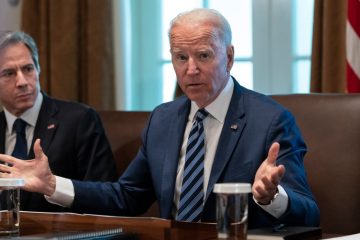
Variable Geometry: What Washington is Getting Wrong
The new buzzword echoing through the halls of the White House is variable geometry. Faced with a panoply of transnational threats, the Biden administration is building fit-for-purpose coalitions between countries and other stakeholders, including local governments, the private sector, NGOs, and academia. Coalitions have been formed to address discrete policy challenges, including COVID-19, food security, providing aid to displaced Ukrainians, and most recently, synthetic opioids. In times of polycrisis, variable geometry suggests that the “America First” policy is no longer viable. Yet, the diplomatic currency of the United States remains zero-sum; official statements about defending the liberal world order continue to echo the end of history thesis, without accounting for the growing demands of middle powers – particularly those in …

The Need to Institutionalise US Support for Ukraine in the Face of Electoral Uncertainty
As storm clouds gather on the horizon, the future of US support for Ukraine remains uncertain. Despite overall high levels of support among the American public, questions over how much money to commit to Ukraine and the looming uncertainty of the next US election cast doubt on the extent to which the US–the largest overall aid donor to Ukraine–can continue to provide support. Growing concerns about accountability and transparency raise further doubts about continuing such substantial support, especially with no end to the conflict in sight. Ultimately, in order to maintain the current level of US support for Ukraine, aid flows need to become institutionalised and predictable. This would allow for more strategic long-term planning on behalf of the US …
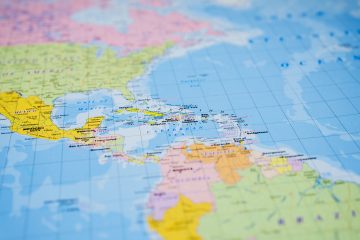
The Biden Administration Must Improve its Foreign Policy Toward Latin America
Historian Joseph S. Tulchin once described U.S.-Latin American relations as a “historical legacy of conflict.” Over the last two years, the Biden administration has neglected regional concerns in Latin America. With a new year ahead, the Biden administration must revaluate its relationship with the region with ample considerations of social geopolitical elements tinted with historic predispositions. Regional concerns cannot continue to be addressed from a preoccupied hardline position. As other nations outside the Western hemisphere strengthen their influence in Latin America, the time to disregard human dignity as imperative to current affairs must end. A U.S. Progressive Foreign Policy While the Biden administration has advocated for a foreign policy stipulated to adhere to international human rights norms, it has failed …

OxPol Blogcast. Women in Politics – In Conversation with Rachel Bernhard: Can Gender-Typical Appearance and Behaviour Help Candidates Win Office?
OxPol Blogcast showcases research, analysis, insights, and experiences from the members of the University of Oxford’s Department of Politics and International Relations (DPIR), and specialist guests from the Oxford academic community and beyond. Are masculine behaviour and appearance among the prerequisites for electoral success, in line with popular belief? On this episode, OxPol Blogcast host Anastasia Bektimirova is joined by Dr. Rachel Bernhard, an Associate Professor at the University of Oxford’s Department of Politics and International Relations (DPIR), to put the view of the political arena as a place favouring conventionally masculine traits to a test. Focusing on the United States, Rachel explains what is understood as masculinity and femininity in political leadership, and guides us through the observed variation in voters’ response to those cues. We also discuss …
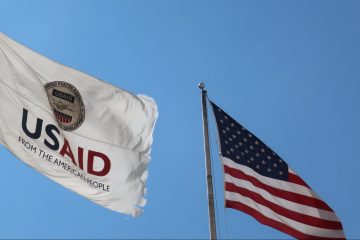
A New Direction for US Democracy Promotion?
As a prominent global aid donor, democracy promotion has distinctively shaped U.S. foreign assistance activities. Democracy aid has been a prominent theme of U.S. foreign assistance since the Marshall Plan. More recently, between 2001 and 2015, the U.S. annually disbursed $18 billion on average in democracy and governance aid, which represents (on average) 43% of the total U.S. foreign aid budget (calculated by the author from U.S. Government data and including Department of Defence figures). Nevertheless, the relationship between institutions and aid is complex and disputed. Scholars argue that inclusive and equitable institutions underpin economic growth and catalyse foreign assistance. Yet aid may also feed back on institutions, strengthening, weakening, or consolidating them. In December 2021, President Biden reflected on …
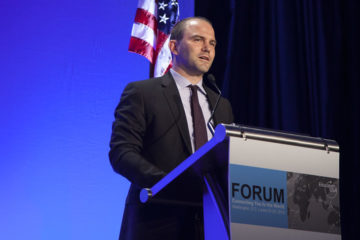
We Used to Do Big Things – A Review of After the Fall: Being American in the World We’ve Made by Ben Rhodes
Barack Obama’s 2008 campaign undoubtedly inspired a movement of young progressives across America, and few believed in the sprawling idealism more than Ben Rhodes, a young New Yorker who ultimately rose to become Obama’s Deputy National Security Advisor. It is this proximity to power, especially during a historic presidency, that makes Rhodes’ second book, After the Fall: Being American in the World We’ve Made, worth considering. After the Fall centers on an author grappling with a reality—in America and across the world—that has shaken his faith in the “happy democratic endings” he and Obama once held as an ultimate goal. Based on a four-year, cross-continent journey, he explores politics from Russia and Hungary to China and Hong Kong to trace …









